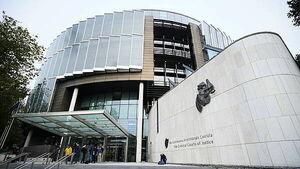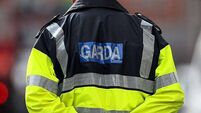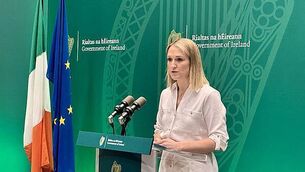29 women from Brazil ‘coerced’ into sex work in Ireland, court hears

Tom Tuite
A bail hearing for four people charged in an international prostitution probe has heard that 29 vulnerable young women were recruited in Brazil and coerced into sex work in Ireland.
Three men and a woman, all from Brazil, were remanded in custody on Monday at Dublin District Court, where Judge Gerard Jones noted the case involved women taken advantage of for the satisfaction and monetary gain of others.
Their arrests on September 3rd follow a law enforcement operation involving officers from Europol and the Brazilian Federal Police assisting the Garda National Protective Services Bureau (GNPSB) in Dublin.
A team of 60 gardaí were involved in the multi-jurisdictional probe.
They face allegations related to 10 brothels in Dublin run since March 2024 by a crime gang involved in human trafficking, brothel keeping and organised prostitution.
The four, who lived in central Dublin, are charged with money laundering involving alleged crime proceeds in various amounts ranging from €29,000 to just over €1.6 million. Bail was refused.
The three men have additional charges for brothel-keeping, organised prostitution at various locations in the State, mainly in Dublin 1, Dublin 7, Dublin 4, and Dublin 8, from March 19th 2024, to September 3rd.
Ms Bruna da Silveira, 25, of Reilly Avenue, Dublin 8, father of one Vanuti Conrado Skierzynski, 35, and 33-year-old Renato Gomes da Silva, both with the same address at Capel Street, and Gabriel do Nascimento, aged 26, who lives at Parnell Street, appeared at Dublin District Court on Monday facing bail objections. It was their second court appearance, having been charged last week.
Judge Jones heard a breakdown of the suspected crime proceeds: Mr Skierzynski allegedly had €1,674,934, Ms da Silveira €737,000, Mr do Nascimento €111,000, since March last year, and Mr da Silva had €29,000 since he arrived in the State in June.
GNPSB Detective Sergeants Andrew Lambe, John Ryan, Alan Lynch, and Michael McGrath told the court that the four defendants were flight risks with no ties to this jurisdiction.
Mr Skierzynski has married an Italian woman and, as a result, has free movement in the EU.
However, the co-defendants had no status or legitimate income in Ireland, and authorities had no record of them entering the country.
The investigation witnesses stated that they believed they used the Ireland–UK common travel area to bring the women in via Belfast to avoid immigration points in the Republic.
Det Sgt Lambe alleged Mr Skierzynski was a significant player, directing the criminal operation’s cell in this jurisdiction. He alleged a single garda welfare check revealed about six escorts working at one property.
A WhatsApp group instructed the women on what to say and how to keep their rooms clean, ensuring that customers did not meet each other.
He said the property owners would not have leased the residences if they had known the purposes.
Evidence was gained from interviewing prostitutes, clients, the bank accounts and money transfers of the defendants and analysis of phones and electronic devices.
Det Sgt Lynch alleged that many of the sex workers were coerced and transported to Ireland. Ms da Silveira was profiting from these activities and also controlled finances, the court heard.
Det Sgt McGrath alleged that Mr. do Nascimento controlled online profiles for multiple escorts, as his English was better. It was claimed that he facilitated appointments and phone bookings, and also provided security.
Each detective stressing that Ireland does not have an extradition treaty with Brazil. The court heard they had no prior criminal convictions.
Luke O’Higgins BL submitted that his client, Ms da Silveira, who also worked as an escort, had to be considered a vulnerable person as well in the investigation.
The defence initially proposed independent surety for Ms da Silveira.
It was man with joint Brazilian and Italian nationality, living in Dublin was withdrawn after it emerged he faced an unrelated prosecution for drug dealing.
Solicitor Colleen Gildernew challenged concerns about her client having travelled around the world, saying his mother was a pharmacist and his father a businessman. His level of travel was in keeping with that, she contended.
Karl Monahan BL, representing Mr Skierzynski, stressed his client could face a two-year wait until his trial. Like other defence lawyers, he argued for bail with strict conditions.
Solicitor Luke Staines argued that the sum of money allegedly associated with his client, Mr da Silva, differentiated him from the co-accused.
However, Det Sgt Ryan maintained that the man also had a central role and profited from at least 12 prostitutes and had only been in the country since June.
The judge, while emphasising they had the presumption of innocence, denied the bail applications.
The four, who could face additional charges, were remanded in custody to appear again in two weeks.
The court heard gardaí were close to completing the investigation file for the Director of Public Prosecutions.
The defendants, who have been granted legal aid, did not address the court or indicate pleas and listened to the proceedings with the assistance of Portuguese interpreters.





